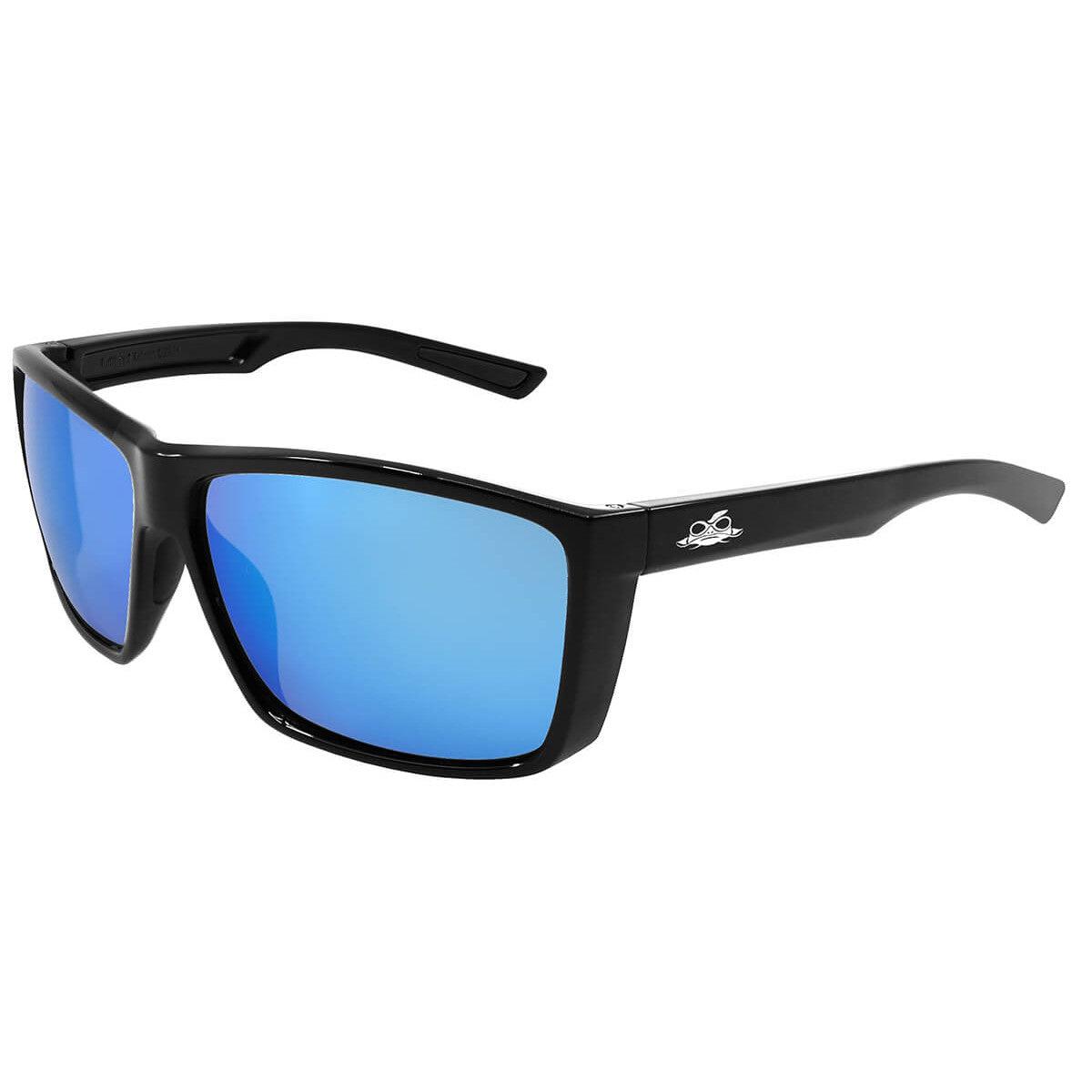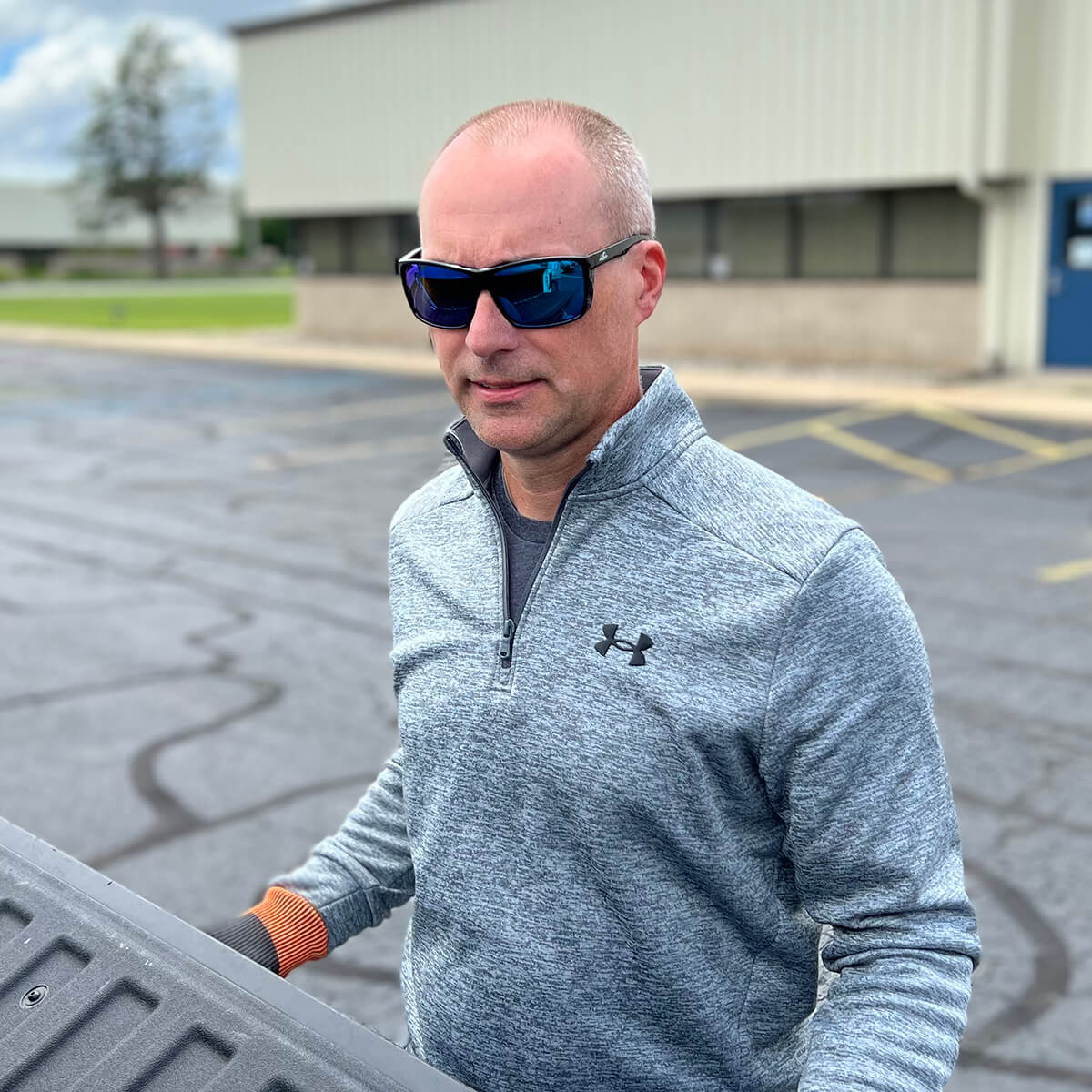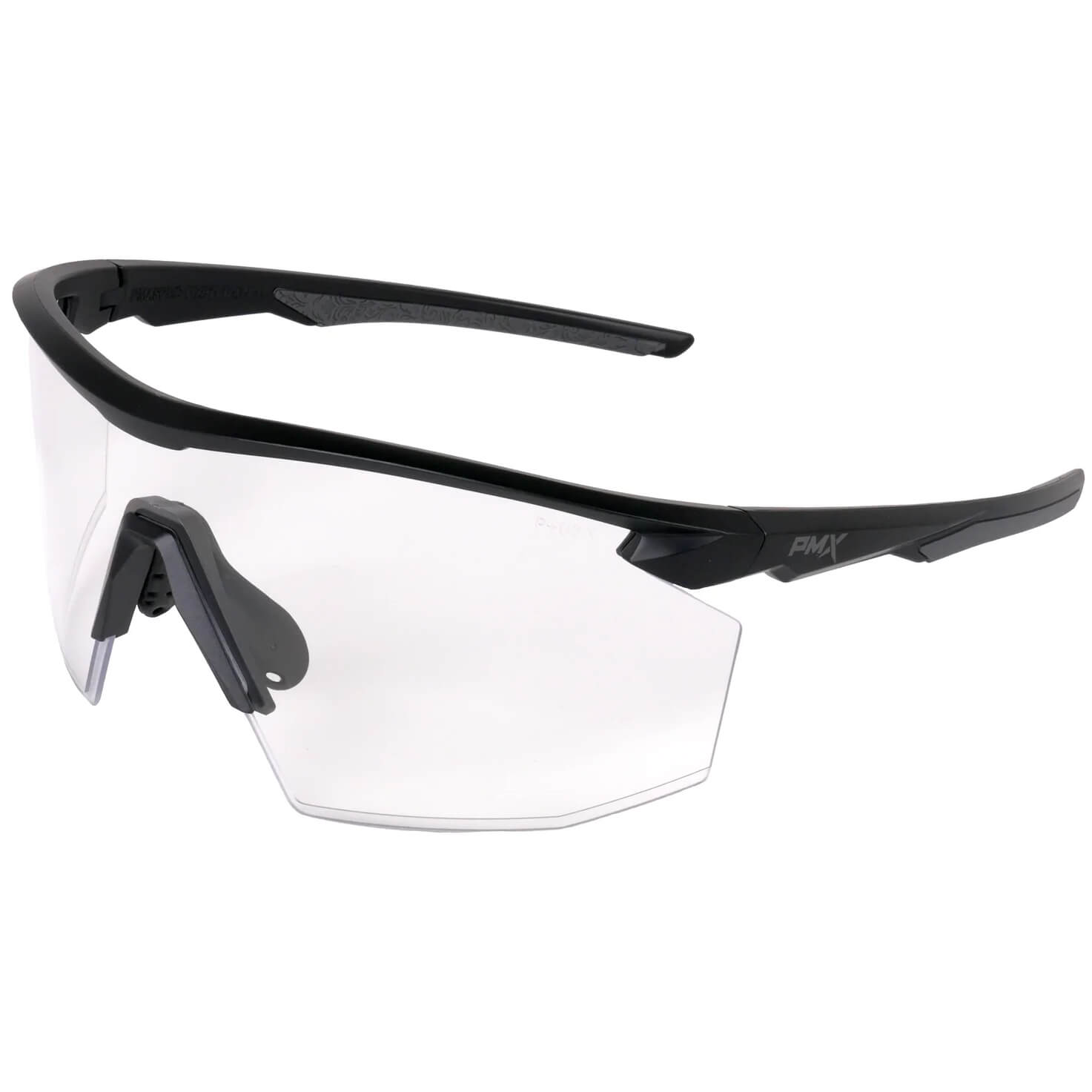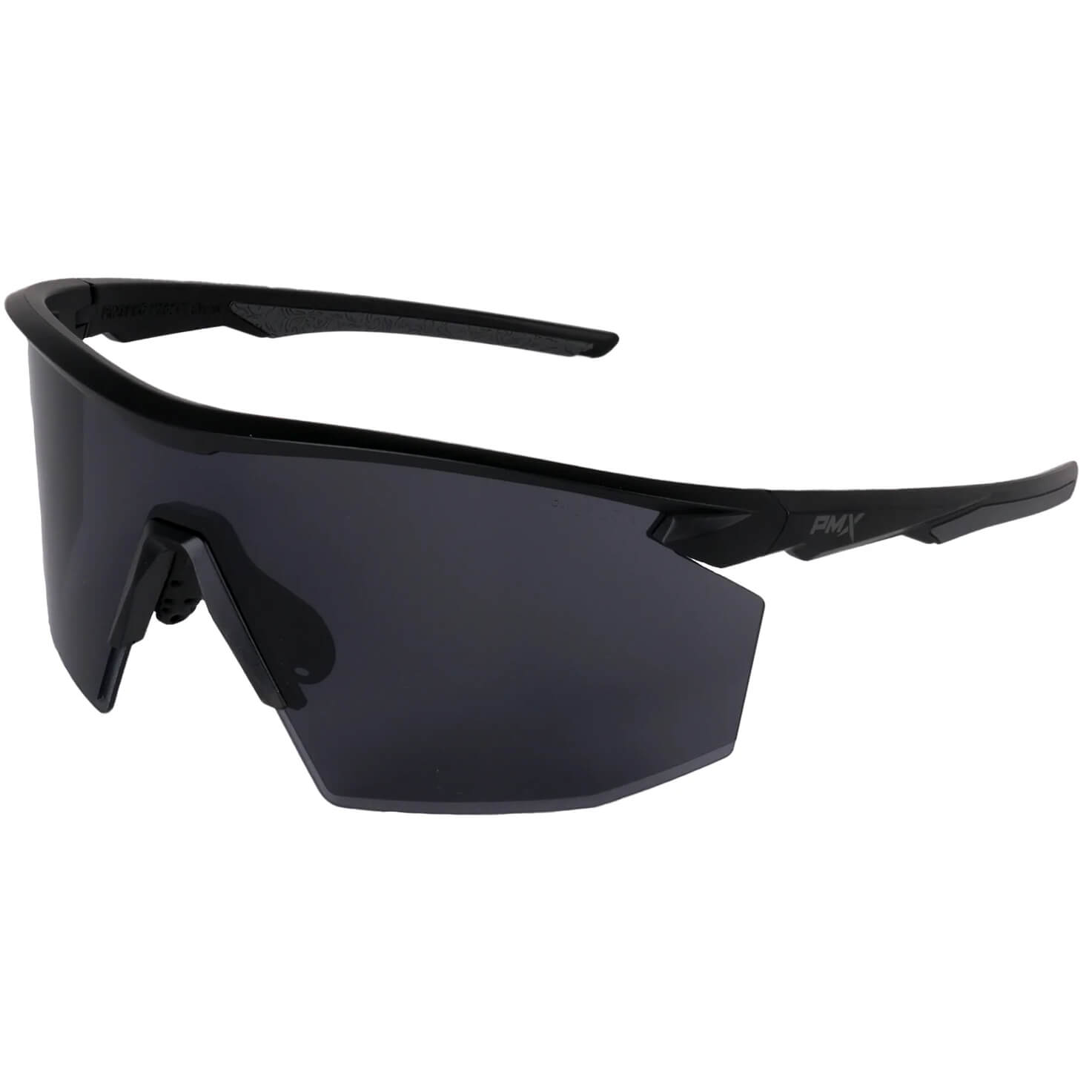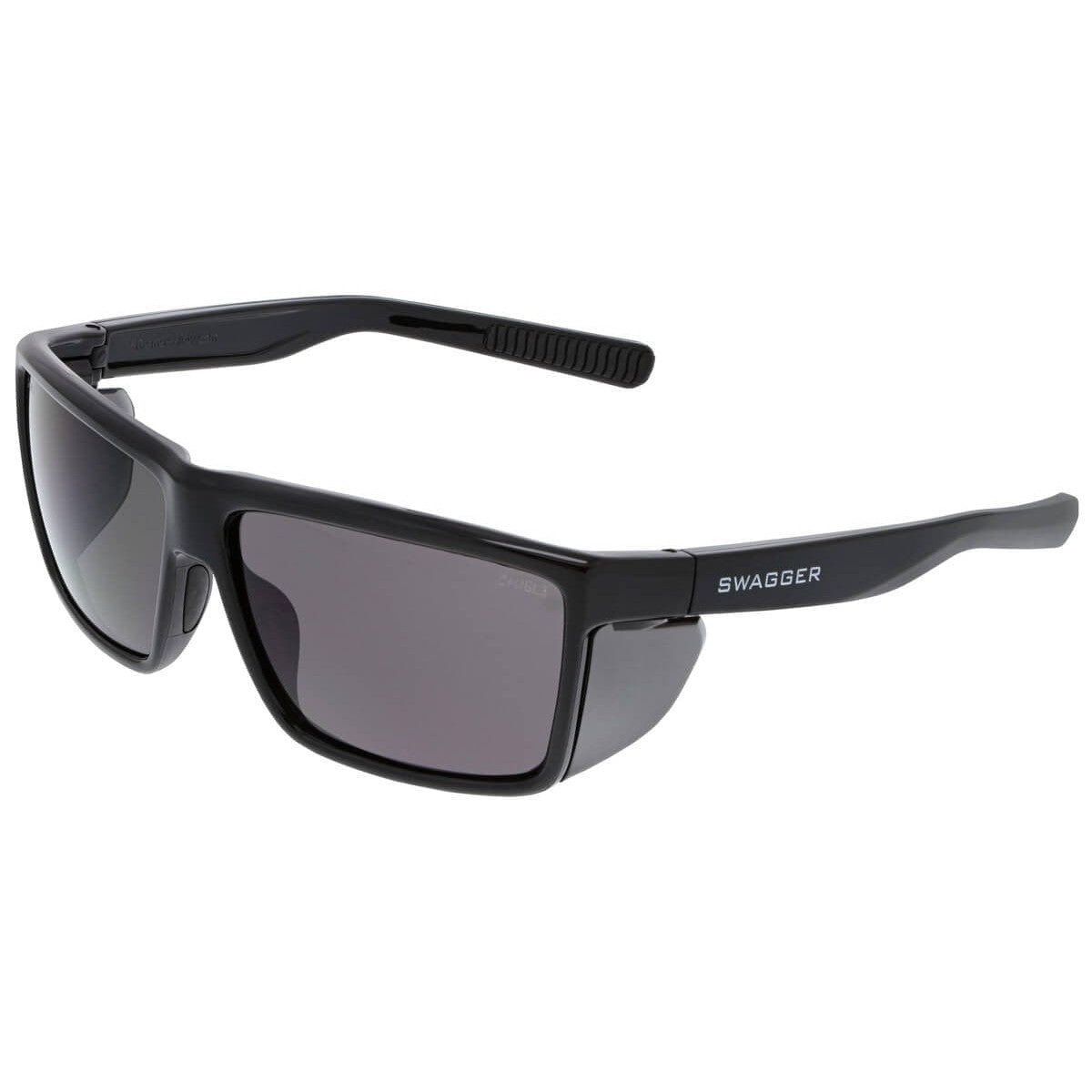What do the experts say about sunlight?
"UV radiation, whether from natural sunlight or artificial UV rays, can seriously damage your eyes." (Vision Source Signature Eyecare)
"Too much exposure to UV light raises the risks of eye diseases, including cataract, growths on the eye, and cancer. Strong exposure to snow reflection can also quickly cause painful damage called snow blindness." (David Turbert, American Academy of Ophthalmology)
"The intense ultraviolet (UV) rays of the sun damage sensitive cells in the eyes, eventually affecting vision. Experts say it is difficult to isolate the amount of damage UV radiation imposes on the eye over a long period. However, several studies have shown that the effects build up and may increase the chance of developing eye problems later in life." (Healthy Women)
Bottom line?
Wear high-quality, polarized sunglasses with at least 99% UVA and UVB protection year-round, even when it's cloudy, especially if you're under 18.

Why?
The first layer to receive the harmful effects of sunlight is, logically, the top layer, called the cornea. When too many hours of daylight cause our eyes to feel dry and itchy, this is inflammation of the cornea (keratitis). This irritation makes eyes ache if we've been outside without adequate eye protection all day.
The next surface of the eye damaged by UV light is the lens. The more UV exposure the lens receives, the earlier it forms cataracts. Cataracts are the grey-blue clouding that obstructs the passage of light to the retina. Only surgical removal of this clouding can restore a patient's vision. Fortunately, today's modern cataract surgery implants intraocular lenses with built-in UV protection.
Even the deepest layer of the eye, the macula, can be injured by UV rays. This is a yellow spot near the retina's center at the back of the eye. Macular degeneration, the breakdown of this tissue, is one of the leading causes of blindness and visual impairment in adults over 50. It is also the direct result of accumulated overexposure to sunlight throughout a lifetime.
Who needs eye protection?
Everyone should wear high-quality sunglasses with at least 99% UVA and UVB protection. It's the best chance for combatting eye damage from the sun.

However, in our first 18 years, 50% of our lifetime exposure to sunlight takes place. Therefore, babies should start wearing quality sunglasses by six months old because their eye tissue is even more sensitive to the effects of UV light than adults. This should begin a person's lifetime commitment to wearing eyewear that protects eyes from the sun's harmful rays.
Note that people taking certain medications may experience increased UV eye sensitivity. Common prescriptions causing this include:
- tetracyclines (a group of broad-spectrum antibiotics)
- sulfa drugs
- diuretics
- tranquilizers
- birth control pills
What's the best protection?
Good sunglasses absorb at least 99% of ultraviolet A and B rays and 75%-90% of visible light. Visible light is not UV but merely the brightness — the glare — which polarization takes care of. The best protection also fits well, so light is blocked from the top, bottom, sides, and front.
Unfortunately, the best sunglasses aren't always obvious at first glance. That's why WebMD recommends…
"Before you even check the price tag, read the label. Do these glasses block 100% of both UVA and UVB rays? If not, leave them on the rack."
Additional sun protection for your eyes include:
- A hat with a brim, like a baseball cap, cuts down on direct light coming from above.
- Ultraviolet-blocking soft contact lenses.
- Clear prescription eyeglasses with an added UV-protection layer.

Final thoughts about the sun's impact on eyes:
- UV exposure is doubled on the water, sand, and snow because of the reflected rays from both above and below.
- The effects of the sun are worse in southern states and closer to the equator.
- UV effects are worse at high altitudes with less atmosphere to diffract and absorb sunlight.
- Quality sunglasses are needed year-round, even on cloudy days, since UV light easily passes through clouds.


